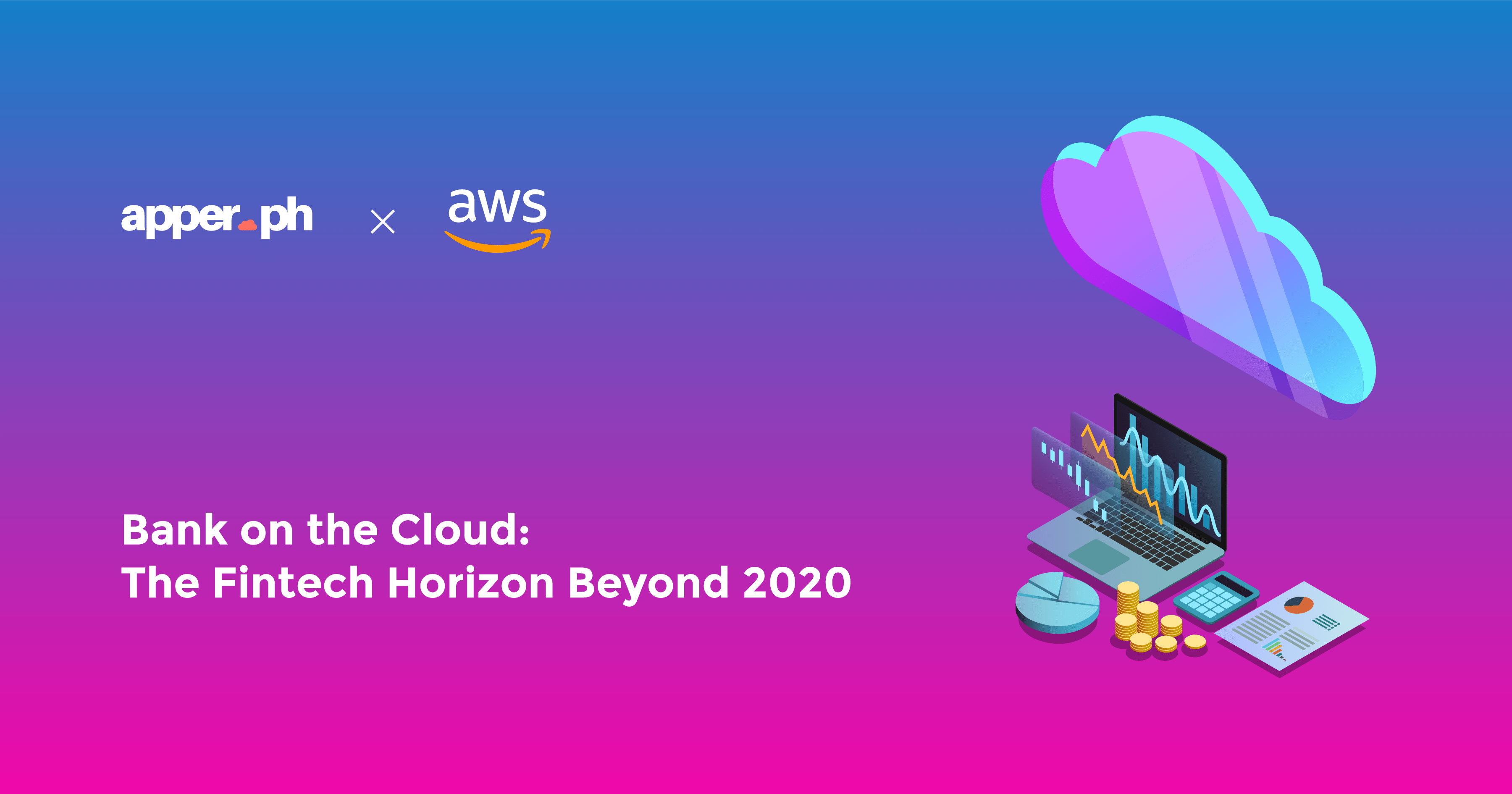As the world continues to grapple with the effects of the COVID-19 pandemic and its economic repercussions, there is a need for innovation and agility for businesses to thrive in the middle of this global crisis.
The Philippines’ fintech sector, a landscape that has experienced strides in the development and delivery of products and services, faces a similar challenge. How can the industry navigate through the current situation, and emerge successful in the New Normal? We discussed market trends and opportunities in our recently-concluded digital forum, Bank on the Cloud: The Fintech Horizon Beyond 2020.
Hosted by our co-founders Diwa Del Mundo and Patrick Zulueta, along with Amazon Web Services’ Marnie Tolosa and Alvin Delagon, the two-hour webinar was a discussion and exchange of ideas on how businesses in the fintech sector can use technologies such as cloud computing, data analytics, artificial intelligence (AI), and machine learning (ML) to help address problems brought about the pandemic. Check out our Facebook page to find out about our upcoming events like this one.
But in order to understand the potential of these technologies in a fast-growing sector, let’s take a look at the fintech industry in the Philippines.
Fintech by the numbers
According to a September report by Fintech News Philippines, the country is home to more than 190 fintech companies, with lending, payments, digital wallets, and remittances emerging as the top categories. With only 29% of Filipino adults having a bank account, it isn’t a surprise that many are stepping up to provide financial access in a bid to capture a growing market.
In 2019, before COVID, digital payments already saw a rapid rise in the market with a 36% jump to reach Php 760 billion in value. ePayment growth outpaced credit card and debit card transactions, which rose 18% and 15% accordingly. This marks a trend where innovative technologies are shifting consumer habits, with fintech transforming the way Filipinos conduct their transactions in an increasingly digital economy. What more in a post-COVID landscape?
The COVID catalyst
The pandemic has become a catalyst for digital transformation in the fintech sector. While 2019 has seen an upward trend, it has only further accelerated the adoption and delivery of new financial services as more people discover ways to buy, sell, and pay amid social distancing restrictions and community quarantines. This has led to market players boosting their efforts to help bridge the gap between Filipinos and financial literacy through innovative technologies like cashless payments and digital banking.
However, it’s not without challenges: a rapid spike in adoption would also mean trouble for fintech companies who can’t keep up, along with a host of new issues that may arise due to restrictions brought about by community quarantines. In our webinar, we discussed some of the potential applications of the cloud, ML and AI for the fintech sector in light of the pandemic and economic recession. These include risk assessment, prediction of market fluctuations, and addressing money laundering and fraud issues that are especially more prevalent today with much of the workforce working from home and in a limited capacity.
If the global pandemic has shifted industries to digital in an effort to survive, then it’s high time for innovative startups in the fintech sector to consider technologies such as cloud computing to help their business to thrive the new normal. By boosting their infrastructure with cloud solutions, they can quickly address pressing issues, all while keeping their business flexible and secure for the years to come.
Take your business to the next level and pursue innovation with the cloud. Talk to us at Apper today.

Mosselle Louise Cruz
Sales and Marketing
Mosselle is an experienced tech startup country launcher and marketing professional with a demonstrated history of working in the information technology and Tech Startup industry. She has helped ASEAN tech brands expand to the Philippines since 2015. She has worked with FinTech and HRTech startups during their early phases, setting up groundwork for the local teams to drive growth and jumpstart operations.

